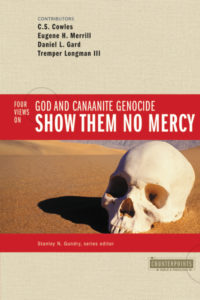While I do not identify as polyamorous, I have many friends who do. Some identify with the Christian faith strongly, others loosely, and still some not at all. And while I would never personally condemn someone’s sexual choices,((that would be rather hypocritical of me)) I was curious about the Biblical basis for monogamy being the norm.
Monogamy being the norm is so pervasive that even those who do not subscribe to it often feel the need to structure their lives around the concept.(( Dowell, Susan. 1995. “Challenging Monogamy.” Theology & Sexuality 2 (March): 85. http://search.ebscohost.com/login.aspx?direct=true&db=a6h&AN=ATLA0000998392&site=ehost-live)) It’s written into our laws. The fact that I even have to write this article is a testament to how ingrained monogamy is in our current society. But that may not have always been the case.
Interestingly, there is no consensus on how common non-monogamy. ((Throughout the article, non-monogamy will refer to both polyamory and open relationships.)) was in antiquity. Some say polygyny, a man having more than one wife, specifically, was accepted and common.(( David F. Wright. The Oxford Guide to Ideas & Issues of the Bible. eds. Metzger, Bruce M., and Michael David. Coogan. Oxford: Oxford University Press, 2001. 157.)) Others agree that it was common, but looked down upon.(( Gene McAfee. Oxford Guide, 458.)) And still others say it wasn’t common, but it was well received.(( Russell Fuller, Oxford Guide, 339.)) But the frequent mention of prostitutes and concubines indicates that sex outside of one’s marriage was definitely commonplace, whether or not it was encouraged.(( We’ve already discussed how the Bible does not condemn sex before marriage- https://scarytino.com/articles/god-loves-sex/unbiblical-requirements/- so this article will focus on sex or relationships for those in a relationship.))
One thing is certain: non-monogamy has been around as long as people have been around. And while those who condemn non-monogamy have probably been around just as long, the accusations for its wrongness are all over the map. It’s unsustainable, unnatural, immoral, etc.1 Non-monogamy has been around so long because it must work for those people. It meets their desires. It fills their voids. So why are so many people so quick to say it’s wrong?
Unfortunately, though, telling others what they can or cannot do is kind of the Christian M.O.2 It’s been happening since the beginning of Christianity, and even has almost an entire chapter of Acts devoted to it. In Acts 15 we read about the Council at Jerusalem. Many Jewish Christians asserted that Gentile Christians were not properly saved unless they became circumcised and followed the Jewish traditions and laws. The council concluded that Gentiles did not need to adopt a new culture in order to be Christian.
One’s marriage and relationship choices are developed in large part by socio-economic factors of societies, and their own individual desires and preferences.((Zabajungu, Boniface K. 1989. “Forms of Marriage: Monogamy Reconsidered.” AFER 31 (2): 126. http://search.ebscohost.com/login.aspx?direct=true&db=a6h&AN=ATLA0000581954&site=ehost-live. )) But we still have many Christians today trying to impose their own cultures and decisions onto others as the only way, regardless of individual circumstances or cultures. Would Acts 15 not be a precedent to not do this with marriages and relationships?
Certainly, if monogamy was mandated in the Old Testament but not the New, we could use it as a precedent. But if monogamy is mandated in the New Testament, then we’d have a tougher time reconciling non-monogamy with the scriptures. However, there is nowhere in Scripture that either mandates monogamy or explicitly condemns non-monogamy.((Zabajungu, Forms, 122; Omoregbe, Is Polygamy, 366-367.)) To delve deeper, let’s work through the common passages used to discuss marriage and relationships throughout the Bible.
While many of these passages are used to promote monogamy only, a closer look reveals no such mandates. The first of two creation accounts does not discuss marriage at all and simply tells humanity to “be fruitful and multiply.”(( Genesis 1:28; Zabajungu, Forms, 123.)) Genesis 2 offers a slightly different perspective. While it doesn’t mention marriage specifically, it does state that one shall leave their parents to become one with their partner.3 While many assert this to mandate monogamy, we see later in scriptures that one can become “one flesh” with anyone one has sex with, even a prostitute.((1 Cor 6:16)) It would be a stretch to assert that this meant marriage if it can happen between anyone who has sex, especially because it was common for men to have sex with multiple women in antiquity.(( We’ll elaborate on that later)) It’s also of value to note that this passage was most likely written during a time with polygyny was legal.((Zabajungu, Forms, 122.))
Even within the laws of the Old Testament, there is no specific condemnation of non-monogamy. We see instructions on how to share food and clothing with more than one wife((Exodus 21:10)) and how to handle inheritances to children from multiple wives.((Deut 21:15-17)) If God requires monogamous marriages, it would be unlikely that they would provide instruction on how to maintain multiple wives properly. Lest anyone think I’m ignoring adultery or the Ten Commandments, we will address that passage later.
It is common to find references to whoring as allegories for idolatry in the prophetic literature. It’s also common for many to interpret this as an allegory for personal/sexual sin. This interpretation equates whoring after false gods with personal, sexual impropriety, showing both as immoral. And while this whoring is an allegory, it is never presented as a personal or sexual sin, but always a corporate sin.((Dowel, “Challenging”, 86.)) And this corporate sin is never related to sexuality, but to forsaking the commands of the Lord to live with justice and mercy. Likewise, nowhere is sexual propriety related to morality.((ibid, 87.)) Sexual morality does not make one a good person in antiquity. Nor does it today frankly, but there are many who equate their requirements for sexual morality with one’s overall morality, which is simply not a Biblical principle.
Later, in the New Testament, Jesus goes on a tirade against divorce. And while many take these verses as commands for monogamy, it’s important to remember their context. This is one of the many instances where the Pharisees are trying to trick Jesus. They were trying to trap him into saying something that would get him in trouble. Rather than give them the satisfaction, he rebuked a sexual double standard.((Dowell, “Challenging”, 88. )) Instead of allowing men to divorce women for almost any reason, while not allowing women to initiate divorce at all, Christ as removing the option of divorce from the table. He wasn’t restricting good men, but was restraining the abuse of bad men.((ibid, 99.)) Like he was literally doing to the Pharisees in that moment.
A more liberal and progressive interpretation would be that Christ was allowing for non-monogamous relationships in this discussion.
Before we move on to Paul’s views on marriage, it’s important to remember that neither Paul nor Jesus were intending to write a theology of marriage.((ibid, 91.))
When it comes to Paul’s words we must remember he was writing to specific people at a specific time about specific issues that they were dealing with. This is not to say that we should not see what he has to say, but to remember that it, in its origination, was never intended to apply to all people at all times.
And while Paul never says anything against monogamy (or non-monogamy) in marriage, it is clear that Paul sees marriage as lesser.(( 1 Cor 7:1-9)) This bias against marriage, sex, and women was incredibly common in early Christianity.(( Dowell, “Challenging”, 91.)) This is best described in a quote from Elizabeth Clark:
This tension caused marriages to be ceremonies held outside of and without the church’s blessings until the 13th century.4 And, to be quite fair, the church had a reason to be wary of marriages. While Jesus doesn’t outright abolish marriage, he does state that there is no marriage in heaven.((Mark 12:25)) We also know that sex is blessed throughout scripture. In his rebukes on divorce, Jesus never rebukes sex but upholds it, continuing the “one flesh” language from Genesis. We also see in Song of Songs that sex is good.(( And this couple probably wasn’t even married at the time. How scandalous!))
If marriage is no more, but sexuality is blessed by God, does that mean that there will still be sexuality in heaven? Some argue yes, and that non-monogamy is assumed because of this. ((Shore-Goss, Robert E. 2004. “Proleptic Sexual Love: God’s Promiscuity Reflected in Christian Polyamory.” Theology & Sexuality 11 (1): 56, 52. http://search.ebscohost.com/login.aspx?direct=true&db=a6h&AN=ATLA0001553108&site=ehost-live. ))This concept is drawn from Christian communities that attempted to live “like the angels in heaven.” In many all-male communities living in close proximity to themselves and God, sexual relations are almost unavoidable. The men not only fall in love with God, but with each other. But there is a basic tenant of these communities- no monogamy. It’s perfectly acceptable for one to be promiscuous, but if one wanted to settle down they would have to leave the community.((ibid, 56, 57, 53.)) And while some will rebut this experience, it is telling that men trying to live as close to God as possible were unable to escape their sexuality. If God didn’t bless sex, especially sex with other men in these particular instances, it would be much less likely for sexual relationships to be so common in these communities. Shore-Goss explains it as such:
Being the bridegroom of Christ is a fascinating language choice that has non-monogamous undertones. While it is often used to defend monogamy- be devoted to your spouse like Christ is devoted to the church-((Ignoring the fact that you can be devoted to your spouse(s) and still be in non-monogamous relationship)) it is important to remember that the church is not an entity of itself, but made up of many individual members of all identity expressions. Christ cannot be a bridegroom to the church without being a bridegroom to all people within the church. This makes Christ a polyamorous lover. And if we’re being honest, this fits into a category Christ is often seen in: the outlaw. In this instance, he’s a sexual outlaw, the likes of which we see in Song of Songs.((ibid, 61.))
And, while the Bible does not say anything one way or the other on monogamy vs non-monogamy, we do need to recognize that worldviews have changed since the writing of the texts. Their worldview would have undoubtedly clouded how they viewed marriage and relationships, and must be taken into account when trying to understand their language and expectations. The world sees three major things differently today when it comes to marriage and relationships.
1. Marriage
There’s no doubt that modern marriage differs from marriages in the Bible, but even early Christian marriage differed from Hebrew marriage.((Cross, F. L., and Elizabeth A. Livingstone. The Oxford Dictionary of the Christian Church. Oxford: Oxford University Press, 2012. 1054.)) Marriage was the first form of family that was based on social conditions and arose with private property and male patriarchy.((Dowell, “Challenging”, 85.)) In the beginning, marriage was a contract between two families meant to make children legitimate.((Ferguson, Everett. Backgrounds of Early Christianity. Grand Rapids, MI: W.B. Eerdmans, 1993. 74-75.)) Because of this, any marriage that didn’t produce heirs was frowned upon.((McAfee, Gene. The Oxford Guide, 457.)) But in early Christianity, marriage was about protecting oneself from sexual sin, because it was believed that celibacy was the ideal.((Schatkin, Margaret. The Encyclopedia, 722.))
Marriage’s purpose has continued to change and evolve as we as a species change and evolve. None of the above examples of marriage match the marriages that we have today. Nor would we try to restrict ourselves to them, because we recognize them as having a place in their culture, but not ours. But why has marriage changed?
2. Sex
Society’s view on sex has changed drastically. Sex during biblical times was typically only for reproduction.(( Clark, Elizabeth, Encyclopedia, 1053.)) While yes prostitution was common, sex was still mostly about making children. Which is why marriage was so important. If a child was conceived through sex with a prostitute, it has fewer rights than a child conceived in marriage.
This changed with the rise of romance and passion. It was of little importance in antiquity. Sex was to make children. Marriage was to make children legitimate. There was no room for passion and romance in such a society. They even viewed it as antisocial and dangerous.((Dowell, “Challenging”, 97.)) But that’s not the case anymore. We have sex for passion now (something that was actively discouraged in early Christianity) and marry for romance and passion. And it’s not just men allowed to this anymore.
3. Women
While it is unfortunate that women are still not always treated equal to men, it is a far cry from the times of the Bible. Women were required to be virgins before marriage, but men were not.((Mcafee, Gene. The Oxford Guide, 457.)) Because of this, women were bound to only one man even after marriage, but men were allowed to have multiple partners before and after marriage.((Lavender, Earl. Encyclopedia, 21.)) That is, as long as the women did not belong to another man. The command to not commit adultery is heavily influenced by the idea that women were the property of the men in their lives, even being grouped in with other property in the commandment not to covet of thy neighbor.((Exodus 20))
Engaged women were also considered complicit in their own rape, condemned to death by stoning, if it happened in a city because they did not call out for help.5 They were however spared from punishment if the rape happened in the country or far from others.6 Single women were forced to marry their rapist after he bought them from their father.((Deut 22:28-29)) Even in one of the most horrific things that could happen to a person, women were punished or treated as something to be purchased after a free, forced, trial period.
This was not changed in the traditions of Judaism which include a morning prayer thanking the Lord that they were not made a woman. Or in the writings of Paul which are categorically misogynistic.
And while some assert that monogamy upholds the integrity of women and their equality with men because the man is not able to have more than one wife, it’s clear throughout history that society hasn’t lived up to that end of the bargain.(( Omoregbe, “Is Polygamy”, 370.)) The church isn’t even free from this continued patriarchy throughout history as they’ve continued to ban women from holding leadership positions, and even in 2016 tell women to focus more on themselves and less about what their husband is doing in their marriage. Comments that sound like they’re telling abuse victims the problem is them and not their abuser.((https://www.al.com/living/index.ssf/2016/05/should_wives_always_submit_to.html))As we move forward and continue to see women as equal to men, we must recognize that monogamy has done nothing to help the equality of women, but does non-monogamy fair any better?
But, one of the beauties of non-monogamy is that it truly gives men and women both equality. They’re both able to explore other options. And if one is afraid allowing for open relationships will ruin the sanctity of marriage((an entirely made up standard that is different for each person in each generation in each culture)) it’s important to note that many affairs do not result in divorce, and most do not result in marriage to the person that affair happened with.((ibid))
Opening one’s marriage to others can also benefit the marriage relationship. While marriage provides stability and predictability, it also comes at the sacrifice of the joy and stimulation of new experiences. Marriages also frequently are too enclosed and all-encompassing for the individuals, oppressing them and not allowing them to fully appreciate the closeness they have with one another because they don’t allow themselves distance. The idea that one partner has to tell their partner everything that happens in their lives, specifically every sexual situation they find themselves in, is childish. It treats your partner more as a parent, seeking their approval for one’s actions, than a partner who is also their own person and will have their own secrets.((ibid.))
In the end, the early Christian church did us a disservice by viewing Christ, and therefore the ideal Christian life, as celibate. They split the sexual from the spiritual, leading to sexual shame and stigma, and blinding people to the potential joy of non-monogamous love and sexuality.((Shore-Goss, “Proleptic Sexual”, 61.)) This has caused the church to forget how to think about social and sexual life outside their own families and preconceived worldview. Our continued obsession with binaries has stolen the beauty of the spiritual and erotic connections we see in works like Song of Songs.7
Throughout history, Christians have tried to take worldly institutions and make them “more Christian.” Marriage is no exception.((Clark, Elizabeth. Encyclopedia, 1053.)) But, at the end of the day:
Marriage is not a Christian institution, it is an institution of society.
Sexual relations are not a corporate decision, they are a decision of the people involved.
Sexuality is not sinful, it is blessed by God as long as nobody is harmed physically or emotionally.
And the Bible makes no command for how one should manage or maintain their sexual and marital relations because those change throughout time and culture, and God is a god of all cultures and all peoples throughout all times.((Omoregbe, “Is Polygamy”, 368.))






One Response
Great article Nick. My wife and I are Christians and we are non-monogamous. I had to do a ton of study to arrive at what you wrote here. Well done! We are married 21 years and been open for 2 now. I feel free and finally comfortable with my sexuality.
Comments are closed.